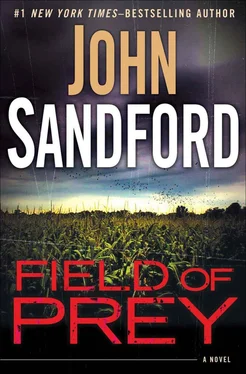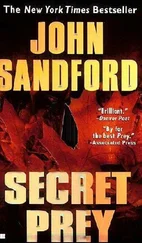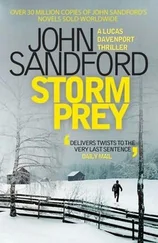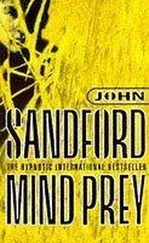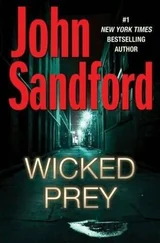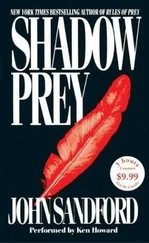John Sandford - Field of Prey
Здесь есть возможность читать онлайн «John Sandford - Field of Prey» весь текст электронной книги совершенно бесплатно (целиком полную версию без сокращений). В некоторых случаях можно слушать аудио, скачать через торрент в формате fb2 и присутствует краткое содержание. Жанр: Триллер, на английском языке. Описание произведения, (предисловие) а так же отзывы посетителей доступны на портале библиотеки ЛибКат.
- Название:Field of Prey
- Автор:
- Жанр:
- Год:неизвестен
- ISBN:нет данных
- Рейтинг книги:4 / 5. Голосов: 1
-
Избранное:Добавить в избранное
- Отзывы:
-
Ваша оценка:
- 80
- 1
- 2
- 3
- 4
- 5
Field of Prey: краткое содержание, описание и аннотация
Предлагаем к чтению аннотацию, описание, краткое содержание или предисловие (зависит от того, что написал сам автор книги «Field of Prey»). Если вы не нашли необходимую информацию о книге — напишите в комментариях, мы постараемся отыскать её.
Field of Prey — читать онлайн бесплатно полную книгу (весь текст) целиком
Ниже представлен текст книги, разбитый по страницам. Система сохранения места последней прочитанной страницы, позволяет с удобством читать онлайн бесплатно книгу «Field of Prey», без необходимости каждый раз заново искать на чём Вы остановились. Поставьте закладку, и сможете в любой момент перейти на страницу, на которой закончили чтение.
Интервал:
Закладка:
When pressed, Jenkins admitted that they had not one scintilla of evidence that would directly suggest that. They couldn’t find a nurse, and Bryan, healthy as a horse, who went to a clinic on the rare occasions when he needed a tetanus or flu shot, had never established a regular doctor.
They continued to push, interviewing Bryan’s bankers, friends, business associates, and his ex-wife. They looked at his known phones, credit cards, the places he’d taken vacations. They had a watch on with Homeland Security and customs.
Bryan had a son going to Yale, and when they checked on him, found that his tuition had been paid in advance-way in advance-and during the school year, he lived in a small house in New Haven, Connecticut, that his father had bought for him. That seemed to suggest that Bryan didn’t think he’d be around to pay the bills on a monthly basis. Asked about it, the kid shrugged: “I guess Father knew he was in trouble, and made arrangements in advance, expecting to go to prison. I don’t think he expected to be killed.”
He didn’t seem to be all that broken up by his old man’s possible demise, Shrake said.
Del suggested that the names of all the money-losing investors be typed into a computer program and run against an FBI database of known associates. That had taken a secretary the best part of a week, and she’d moaned and complained the whole week. When they pushed the button on the computer program, nothing happened.
Like. . nothing.
Lucas had two other, non-related cases hanging out there.
Del was watching two elderly couples named Case and Waters, from Sartell, Minnesota, who traveled together in an oversized RV, towing a Jeep Wrangler. According to sources on Lucas’s Asshole Database (ADB), they financed their travels-indeed, their entire retirement lifestyle-by buying high-end black rifles on the northern plains, between the Rockies and the Great Lakes, where the cops were few and far between and the weapons were abundant. Once they had a hundred rifles or so, they’d transport them in the RV to the Texas border, where they sold them to a selection of underground dealers, both American and Mexican.
Lucas’s sources said they’d unload batches of twenty or thirty rifles at a time, making anywhere from $400 to $800 each, depending on brand and condition, in profit. If you wanted to pay cash, that was great. If you wanted to pay in cocaine, that was even greater, since the two couples had a tight connection to the Washington Avenue Set of the Black River Lords of Chicago. On cocaine deals, the profit went to $1,500 per rifle. They’d make five or six trips a year.
“That’s getting up to a half-million dollars a year, not counting their Social Security checks,” Del said. Del was coordinating with both the ATF and the DEA on tracking the senior citizens. “Don’t tell anybody I said this, but I think they might be doing some wife-swapping, too. The right spouses don’t always go home together. And sometimes they have sleepovers, where nobody goes home. . ”
“Yeah, Jesus, I don’t want to hear about it,” Lucas said.
In addition to the gun peddlers, Lucas was dealing with a. . peculiarity. A week after the Black Hole discovery, Lucas got an arrest warrant for Emmanuel (Manny) Kent, the brother of a serial bank robber named Doyle Kent.
Doyle Kent had been tentatively identified by Jenkins, after consultation with the ADB, and loosely tracked by the BCA and a variety of metro-area police departments for four months.
When he’d begun to focus on a bank in suburban Woodbury, the tracking got tighter. On a misty day in July, he’d gone into a Wells Fargo branch, wearing a fedora, one leg of a pair of sheer nylon panty hose over his face, carrying a bag for the money and a Colt.45. He’d been killed by the Woodbury cops when he came out of the bank shooting.
In the subsequent round of self-congratulation, Jenkins and Lucas had been credited with the identification of Doyle Kent, while the Woodbury cops got credit for taking him down.
The week after the shoot-out, the Minneapolis cops began picking up talk that Emmanuel Kent was telling his street friends that he was going to kill Lucas and Jenkins as soon as he could get a gun. If he couldn’t get a gun, he was going to stab them to death, with a knife that he already had.
Lucas and Jenkins did some research on him and found that Emmanuel Kent was a thirty-two-year-old schizophrenic with four convictions for assault, and twenty-two arrests over sixteen years for possession of small amounts of marijuana.
Nobody had been badly injured in the assaults, which actually appeared to be street fights, rather than straightforward attacks. Several doctors had also testified on Kent’s behalf in the drug cases, telling the courts that his use of marijuana was an attempt at self-medication, because the use of antipsychotics made his thinking so fuzzy that he couldn’t care for himself.
As one doc put it, “He’d rather be crazy than helpless, and the weed makes him less crazy.”
In any case, Lucas and Jenkins found enough people to testify about Emmanuel Kent’s threats that they were able to get a warrant and have him picked up for another psychiatric evaluation, to determine how serious the threats might be.
The Minneapolis cops were familiar with Kent and his habits, and where he usually slept, and so picked him up immediately. He was held at the Hennepin County Jail, and evaluated by a contract psychiatrist named Betty Calvin, who returned a report that said Kent was basically a gentle individual who spent his days collecting recyclable cans, and donations of dog and cat food, which he distributed to stray dogs and cats during the evenings.
When pressed, Kent told Calvin that he really didn’t intend to stab anybody.
But, she said, he was also prone to acting out, and in a specific set of circumstances, might be a threat. She did not think he was capable of planning an attack, but if he should encounter Lucas or Jenkins at random, might be capable of some level of violence.
His animus toward Lucas and Jenkins was based on a news story in the Minneapolis Star-Tribune that noted that Lucas had been involved in another fatal bank-robbery shoot-out, which had been controversial at the time, at least among progressive legal theorists.
Two female bank robbers had been gunned down after robbing a bank and shooting one of the customers. Lucas and his team had trailed them for quite a while, being morally certain that the women had been involved in other robberies and shootings, but without evidence to arrest them.
Lucas had then allowed the women to go into the bank, and their killings outside the bank had been only thinly disguised summary executions, even though the two women had opened fire first. The surveillance without supporting evidence had been a violation of the women’s civil rights . . according to the theorists.
Not much was said about the customers and bank employees who’d been shot during the two-state robbery spree.
Emmanuel Kent, who might be crazy, but who was not illiterate, read the article and picked up on the concepts of “summary execution” and “civil rights.”
Lucas, he said, had done it again, this time, to his brother.
Doyle had been Manny’s only source of financial support during his life on the street. He used the money to feed himself and the cats and dogs, and to buy the weed he used to self-medicate.
Lucas and Jenkins, he said, had gotten his hero brother killed in cold blood.
“Not too worried,” Jenkins had said, after reading the shrink’s report.
“Not about being stabbed,” Lucas said. “But Jesus, we sort of fucked him, didn’t we? What’s he gonna eat?”
“There are five hundred people out there tonight who are worried about that, Lucas, and none of them are threatening to stab us to death,” Jenkins said. “If we want to worry about somebody, let’s worry about them first.”
Читать дальшеИнтервал:
Закладка:
Похожие книги на «Field of Prey»
Представляем Вашему вниманию похожие книги на «Field of Prey» списком для выбора. Мы отобрали схожую по названию и смыслу литературу в надежде предоставить читателям больше вариантов отыскать новые, интересные, ещё непрочитанные произведения.
Обсуждение, отзывы о книге «Field of Prey» и просто собственные мнения читателей. Оставьте ваши комментарии, напишите, что Вы думаете о произведении, его смысле или главных героях. Укажите что конкретно понравилось, а что нет, и почему Вы так считаете.
